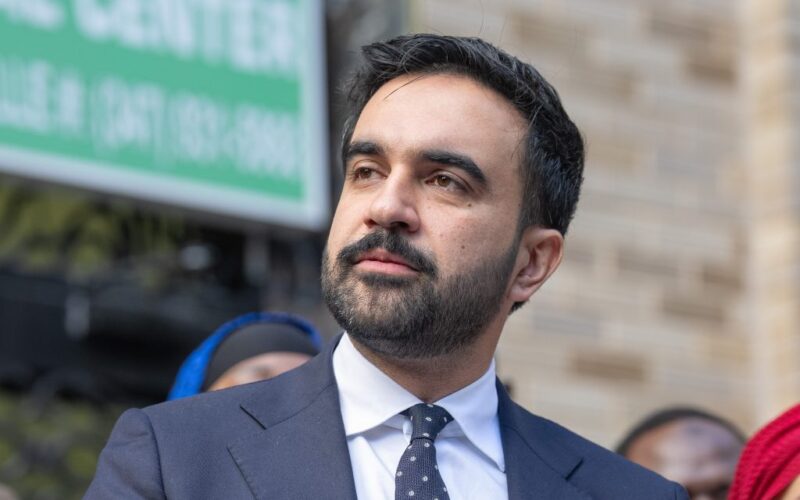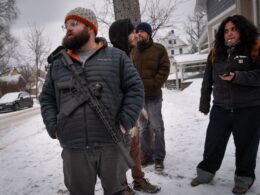Something extraordinary happened last week. More than 1,000 rabbis from across the United States, representing the full spectrum of Jewish religious practice, joined together in a national rabbinic sign-on letter to affirm a simple but profound message: the Jewish people will not stand silently by as the type of anti-Zionism espoused by public figures like Zohran Mamdani becomes normalized in American politics.
This statement, coordinated by The Jewish Majority, signifies one of the largest and fastest-growing expressions of rabbinic unity in recent memory. In less than 72 hours, it drew signatures from rabbis representing every region of the country and every political stripe. Together, they declared that attacks on Israel’s legitimacy are far more nefarious than simple foreign-policy disagreements — they are assaults on Jewish identity itself.
Over the past two years, we’ve watched antisemitic rhetoric move from the fringe to the mainstream. Chants declaring that Palestine must exist “from the river to the sea,” a call that so obviously erases Israel’s existence that more than 85% of Congress recognized it to be antisemitic, now echo across college campuses and city streets. Politicians accuse Israel of genocide and demand its isolation. Jews are told that their connection to Israel is something to hide or to apologize for.
A tiny number of anti-Zionist Jews are often at the forefront of normalizing this rhetoric, aided in their frequent demonstrations by legions of non-Jewish allies who intentionally serve to make their groups seem larger. These fringe factions have waged a sophisticated media campaign to convince the public that Zionism is controversial within the Jewish community — or even separable from the Jewish soul.
That ends now. This rabbinic statement was a line in the sand. It declared that Zionism, the belief that the Jewish people have a right to self-determination in their ancestral homeland, is not a partisan position or a policy preference. It is an essential part of Jewish identity. To delegitimize Israel is to delegitimize Jews themselves.
This deep understanding of Judaism is what makes Mamdani’s refusal to condemn the phrase “globalize the Intifada” so threatening to Jewish leaders. Many of these rabbis lived in Israel during the intifada. They had friends murdered when Hamas detonated a bomb in the cafeteria of the Hebrew University. They comforted relatives of the victims of a Hamas suicide bombing at a Passover Seder. They saw the intifada globalized right here in New York City on Sept. 11, 2001.
Politicians who shrug off or refuse to denounce that language normalize a worldview in which Jewish safety is expendable. The consequences are real: a fragile ceasefire may be holding in Gaza now, but the wounds of Oct. 7 and the Gaza war demand honest work toward reconciliation and healing.
That work — the painstaking labor of truth-telling, accountability, and negotiation — is precisely what anti-Zionism rejects. The modern anti-Zionist movement isn’t a critique of Israel, nor does it press for Palestinian rights in a way that seeks mutual recognition or compromise.
Anti-Zionism insists that there can be no negotiations, no reconciliation, no political settlement so long as Israel exists as a Jewish state. That is not a plea for human rights; it is a demand that Jewish self-determination be erased. In practice, that posture is inherently pro-war: it rewards maximalist cruelty over pragmatic peacemaking, and it treats coexistence as the enemy rather than the goal.
That is why rabbis signed this letter in such force and with such speed. The clergy who led this effort understand that religious leadership is not merely about pastoral care; it’s about protecting the moral and civic space in which our children grow up. They saw this not as a partisan intervention but as a stand for civilization: for the idea that communities can disagree without calling for each other’s disappearance.
When cries for the “globalization” of violent uprisings become mainstreamed, the first casualties are the possibilities of negotiation, amends, and a future in which two peoples can live with dignity. That’s worth more than a free bus ride.
For those who believe that erasing Jewish self-determination is a legitimate political demand, know this: you will meet a countervailing will. America’s rabbis have reminded the nation that standing for Israel’s legitimacy is not a march into war, it is a stand for the possibility of peace. They conveyed another message as well: if calls for our disappearance are normalized, the American Jewish community will respond — firmly and united.
Schulman is executive director of The Jewish Majority, a research and education center focused on Jewish American perspectives.








